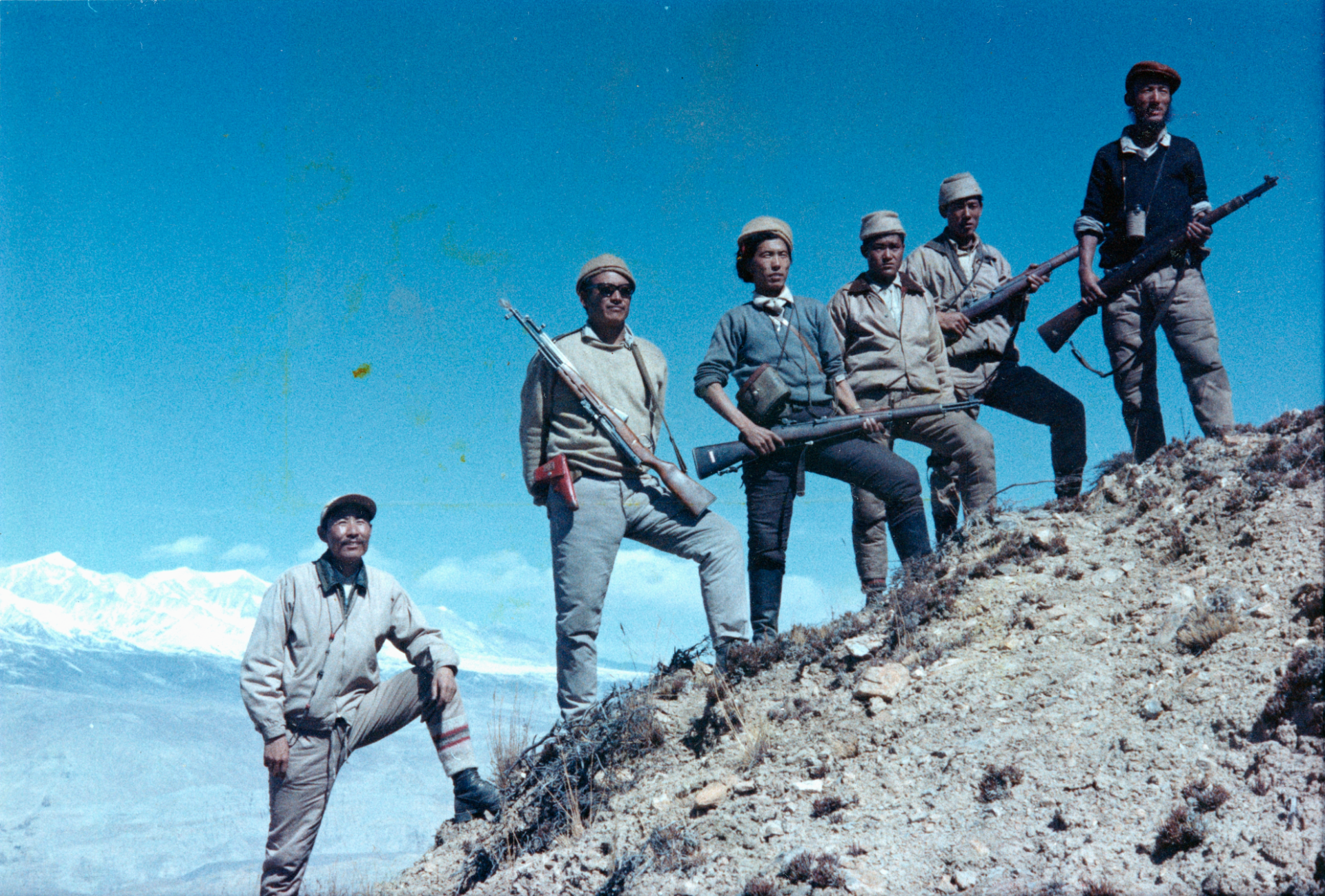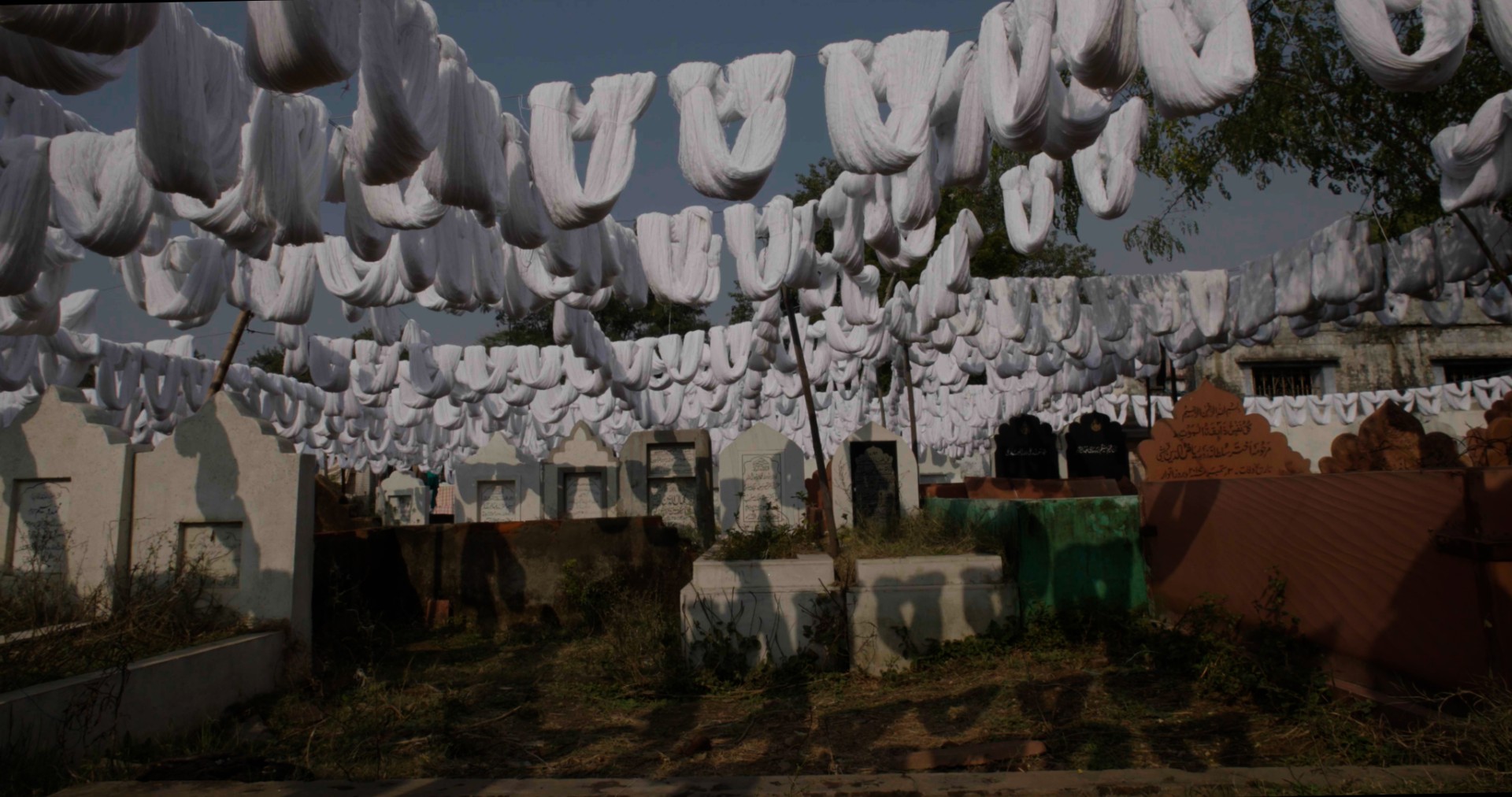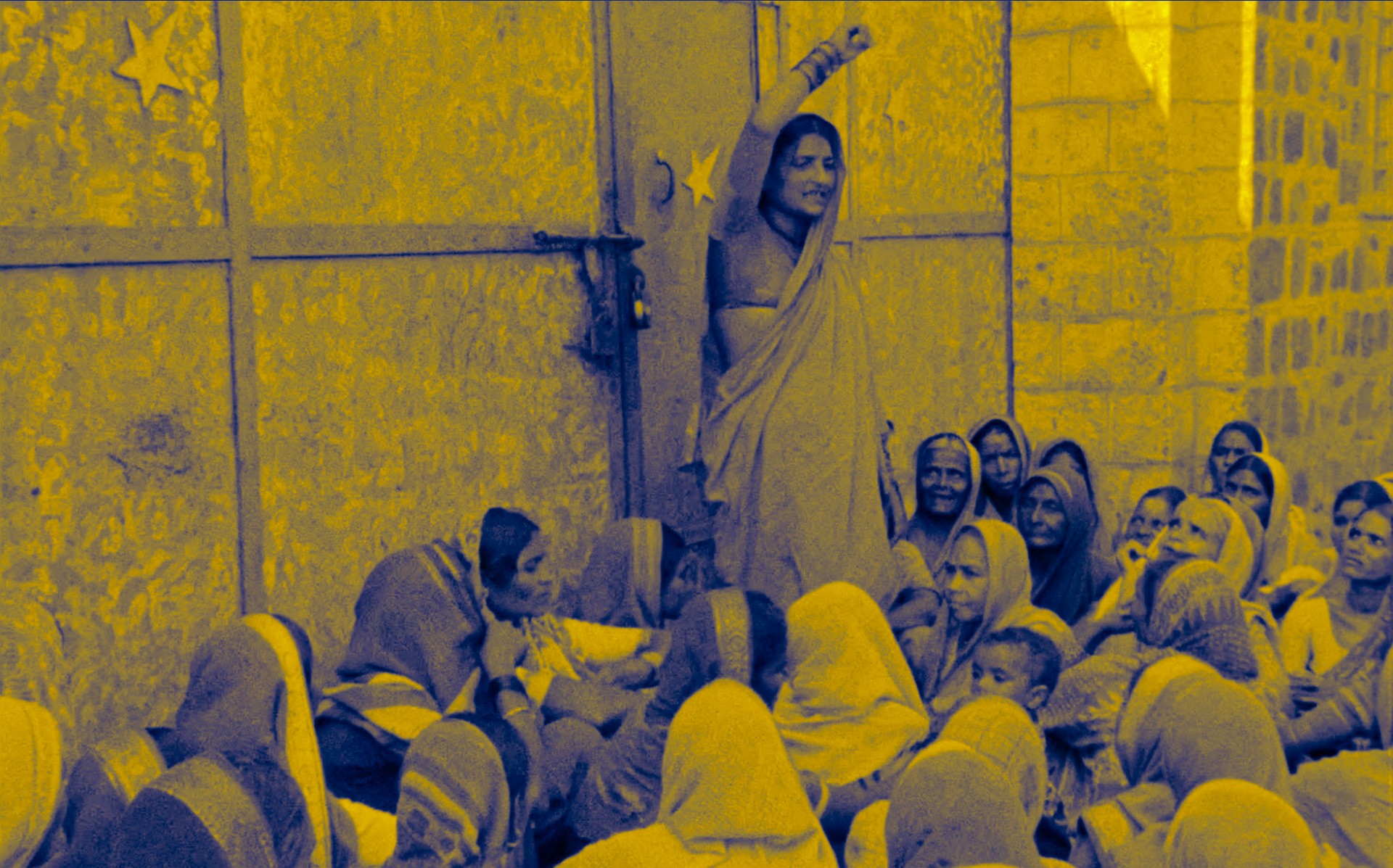WELCOME TO APPLIED FICTION:
Filmausstellung von Jean-Pierre Bekolo
ausstellung 11.02.–25.02.2016
eröffnung 10.02.2016 18:00 DJ Pam Bam 22:00
führungen Fr–Sa 16:00
Workshops Mi Do Son 18:00–20:00
Kooperation mit Berliner Künstlerprogramm des DAAD
KURATORen Katharina Narbutovic Bonaventure Soh Bejeng Ndikung
KURATORIsche ASSISTenz Lauren Moffatt Lema Sikod
Können wir dies eine Ausstellung nennen? Eine Filmausstellung? Geht es wirklich darum, Filme zu zeigen? Filme zu schauen, Filme zu lesen oder Kino zu leben? Wäre es nicht angemessener zu sagen, was wir tun, ist View-ding (von viewing, reading und living)? Viewding, eine Praxis, die sich uns aufdrängt durch das, was aus dem bewegten Bild wurde in den neuen Medien fern ab der großen Leinwand in einem dunklen Raum. Wir müssen Bilder so lesen, wie wird Bücher lesen. Dies verpflichtet uns Filmemacher dazu, Filme so zu schreiben, dass sie gelesen werden können … Ich meine, geschaut werden können… jenseits der berechneten Formelfilme, deren Rezepturen die Humanität aus dem Erleben und Erdichten der Erzählkunst geraubt haben.
Welcome To Applied Fiction! Wo der Filmemacher, Schriftsteller und Kritiker Jean-Pierre Bekolo die Begriffe, Prozesse und Wahrnehmungen des Filme- wie auch des Ausstellungsmachens radikal hinterfragt und dekonstruiert. Indem er die Konzepte von Kino und Ausstellung seziert, entkleidet und in ihre einzelnen Einheiten zerlegt und präsentiert, begibt sich Bekolo in eine pathologische Untersuchung, eine Autopsie des Film- und Ausstellungsmachens. Diesem diagnostischen Prozess wohnen das etymologische logia (berichten/ erzählen von) sowie pathos (die Erfahrung von Leiden) inne, was behilflich sein kann, beim Verusch zu verstehen, was Film- und Ausstellungmachen heute bedeutet.
Wie zahlreiche kritische Stimmen vor ihm, nimmt auch Bekolo das Kino weder für bare Münze noch hält er es für selbstverständlich, wenn er dessen Essenz in Frage stellt, oder vielmehr wenn er im Sein des Kinos herumwühlt, was man wiederum superlativisch als die Quintessenz von Kino bezeichnen könnte. „Wenn Kino aus Dingen und Menschen gemacht wird, ist es wichtig, zu überdenken, womit wir Kino machen – die Werkzeuge, die Sprache und der Prozess, durch den wir dieses zweite Leben, genannt Kino, erfassen und organisieren und das wir außerhalb unserer selbst sehen können wie Radiologen und das eine narrative Spekulation über unsere Leben ist,“ sagt Bekolo. In diesem Prozess des Überdenkens, Aufdeckens aber auch des Topf-Umdrehens um zu sehen, was unter dem Topf ist, aber auch, um den Raum zu bieten, ihn als etwas anderes zu benutzen als einen Topf – zum Beispiel als Trommel - in diesem Prozess arbeitet Bekolo theoretische Konzepte, Gebilde oder Fragen heraus, die sich innerhalb der Ausstellung WELCOME TO APPLIED FICTION als die folgenden Installationen materialisieren: Motion Thinking, Filmmaker Without a Camera, Return to Sender, Cinema with Everything, Cinema in Everything, Cinema of Everything, Film Brain – The Memory, Mining for Minds, Auteur Learning, The Miracle Room.
An dieser Stelle scheint es angebracht, über die Begriffe application(Anwendung) und applied (angewandt) im Kontext von WELCOME TO APPLIED FICTION nachzudenken. Was bedeutet applied im Zeitalter von Apps (applications) – diese technischen Errungenschaften, die dazu dienen sollen, unser (Da-)Sein zu erleichtern oder gar zu verrichten, in dem sie unsere Aktivitäten, Funktionen und Gedanken koordinieren? Die App fungiert beinahe als ein zweites Rückenmark des Menschen, das die Nutzung des Hirns verkürzt oder reduziert, da Reflexe mittlerweile entweder koordiniert werden durch das Nervensystem des Rückenmarks oder durch das rechentechnische System der App. Ist applied fiction (angewandte Fiktion) also erleichterte, zugängliche Fiktion? Wenn aber das applied in Applied Mathematics (angewandte Mathematik) Praktikabilität und den Einsatz von Mathematik zur Untersuchung der biologischen, physikalischen, ökonomischen und soziologischen Welt bezeichnet, dann könnte auch applied fiction den Einsatz von Fiktion zum Verstehen dieser biologischen, physikalischen, ökonomischen und soziologischen Welten und darüber hinaus meinen. Bekolos Ausstellung könnte begriffen werden als Darstellung des Vorstellbaren sowie des Gegenständlichen in Echtzeit, was sowohl die Realität als auch deren Fiktionen einschließt. Dabei sind sowohl Schöpfer als auch Zuschauer eingebunden in den Prozess des Filmemachens und das echte Leben ist sowohl das Kino als auch dessen Fiktion.
Jean-Pierre Bekolo ist ein Filmemacher, Schriftsteller und Kritiker aus Kamerun. Sein Debütfilm Quartier Mozart wurde 1992 mit dem Prix Afrique en Création beim Cannes Film Festival ausgezeichnet. Sein zweiter Film,Aristotle's Plot, wurde vom British Film Institute anlässlich des 100-Jahr-Jubiläums des Films in Auftrag gegeben und war der erste afrikanische Film, der für Sundance Film Festival ausgewählt wurde. Sein 2005 herausgekommener Film Les Saignantes gewann den Silver Stallion und Best Actress Awards bei FESPACO. Bekolos Videoinstallation An African Woman in Space wurde 2008 im Musée du Quai Branly in Paris ausgestellt. 2013 wurde Bekolos kontroverser Film Le President, der das Phänomen von Afrikas „immerwährenden Regierungen“ in Frage stellt, in Kamerun verboten. Seine vierstündige Dokumentation Les Choses et Les Mots de Mudimbe lief 2015 auf der Berlinale. 2009 veröffentlichte er das Buch Africa for the Future – Sortir un Nouveau Monde du Cinéma. Bekolo hat zudem unterrichtet an der UNC Chapel Hill, der Duke University und der University of Yaoundé. Bekolo ist Gründungsmitglied der World Cinema Alliance und seit 2006 Generalsekretär der Guild of African Filmmakers. 2015 wurde ihm der Prince Claus Award verliehen. Seit Sommer 2015 ist er Gast des Berliner Künstlerprogramms des DAAD.
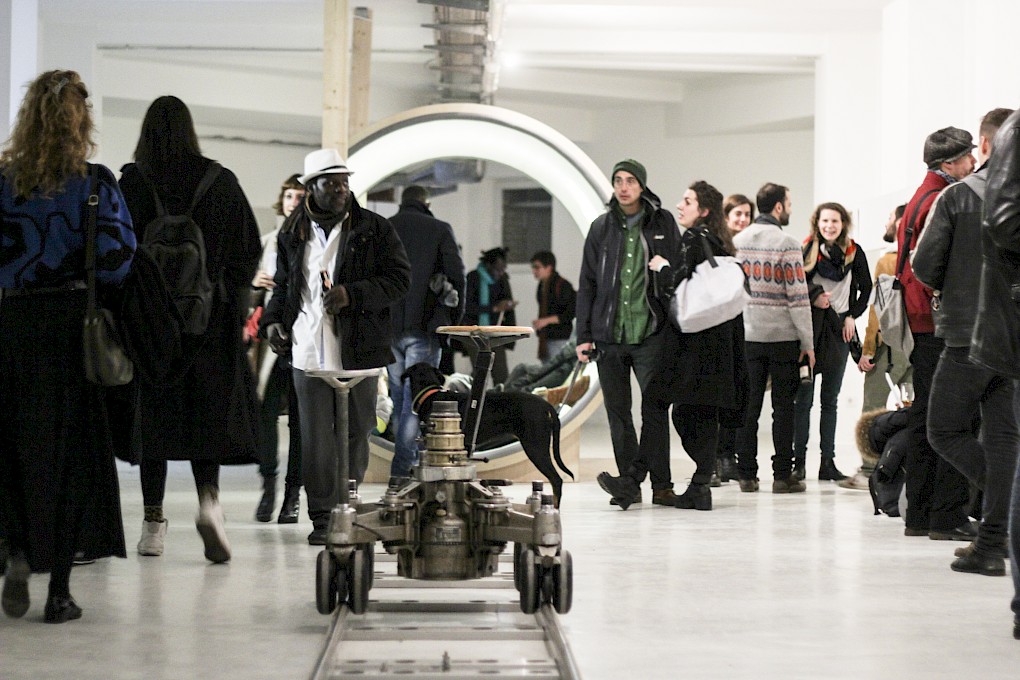
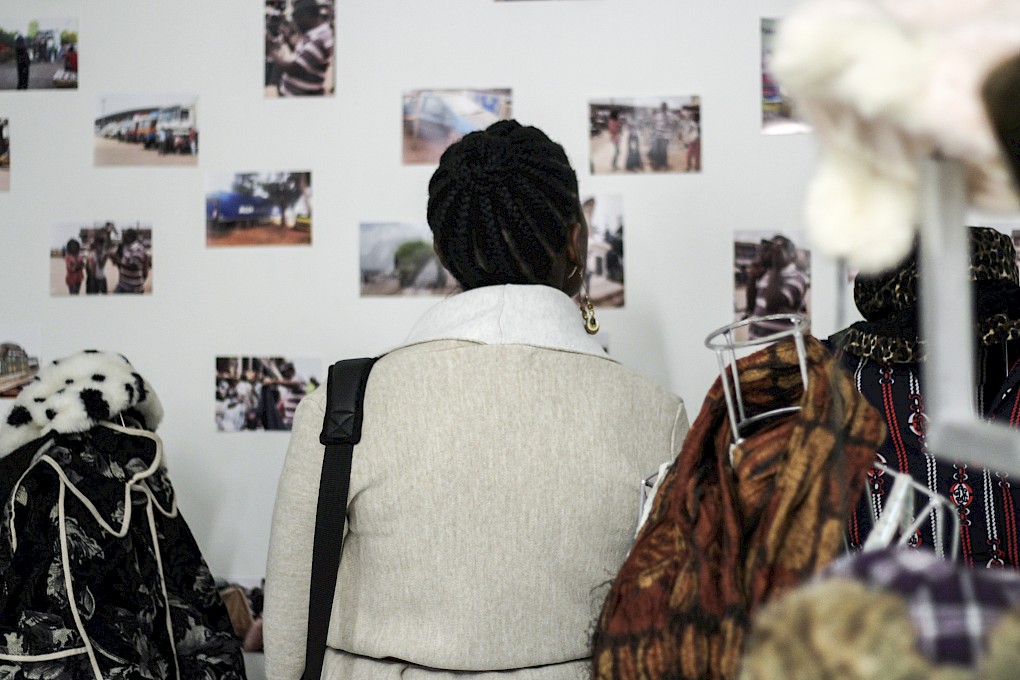
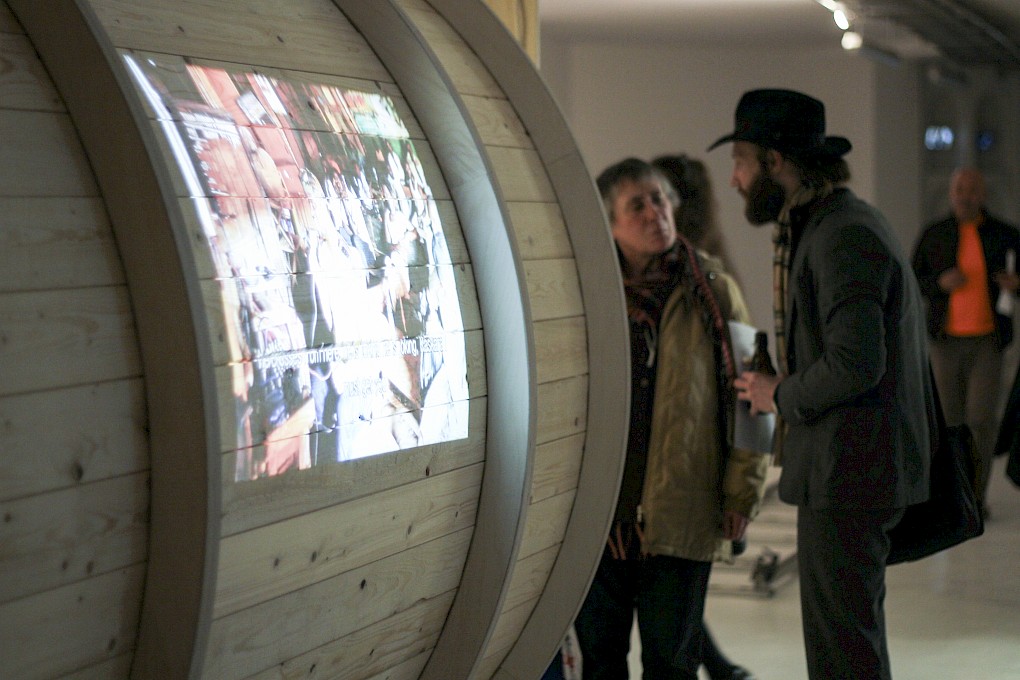
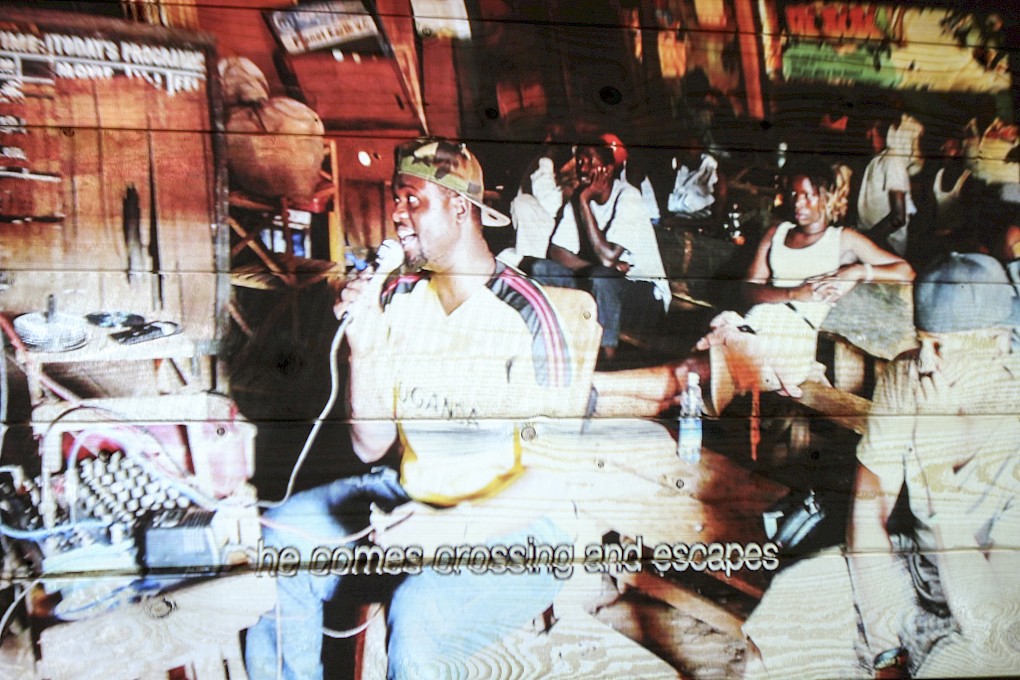
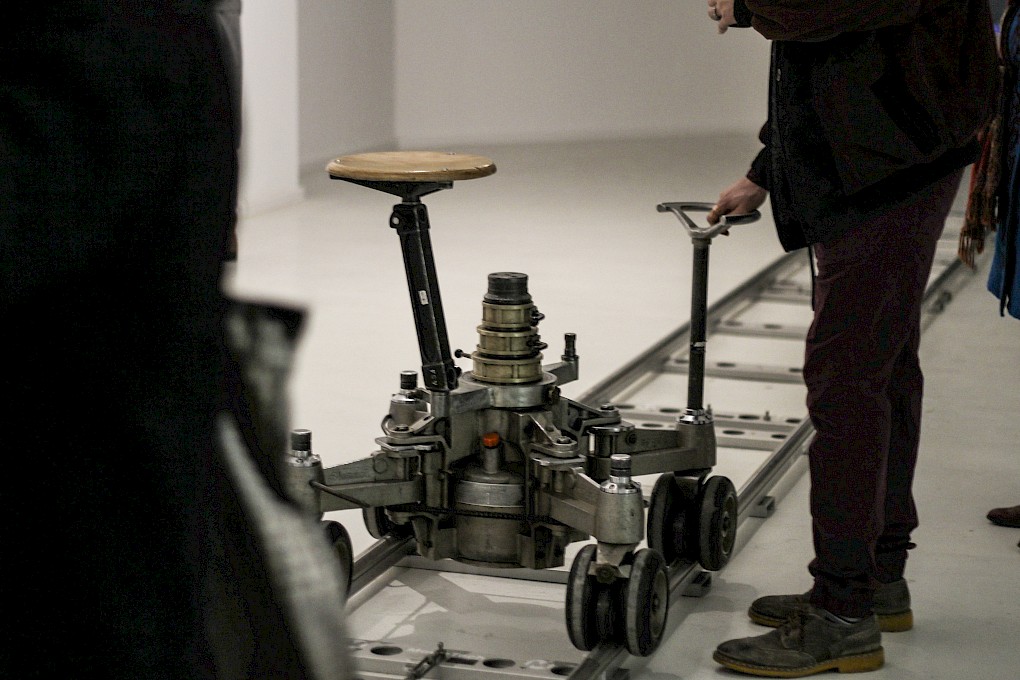
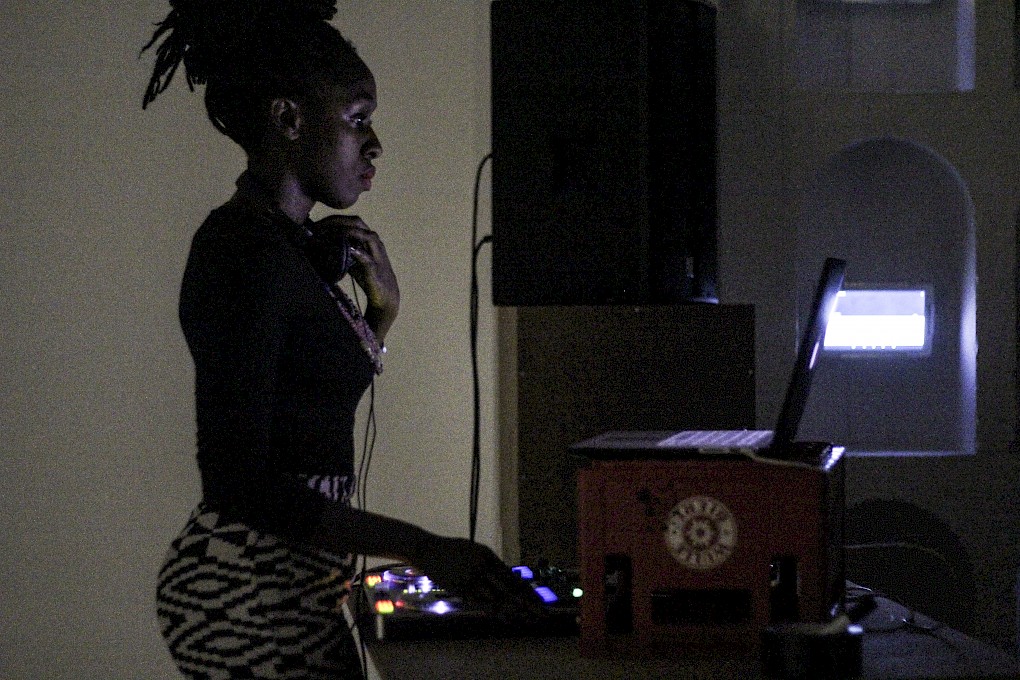
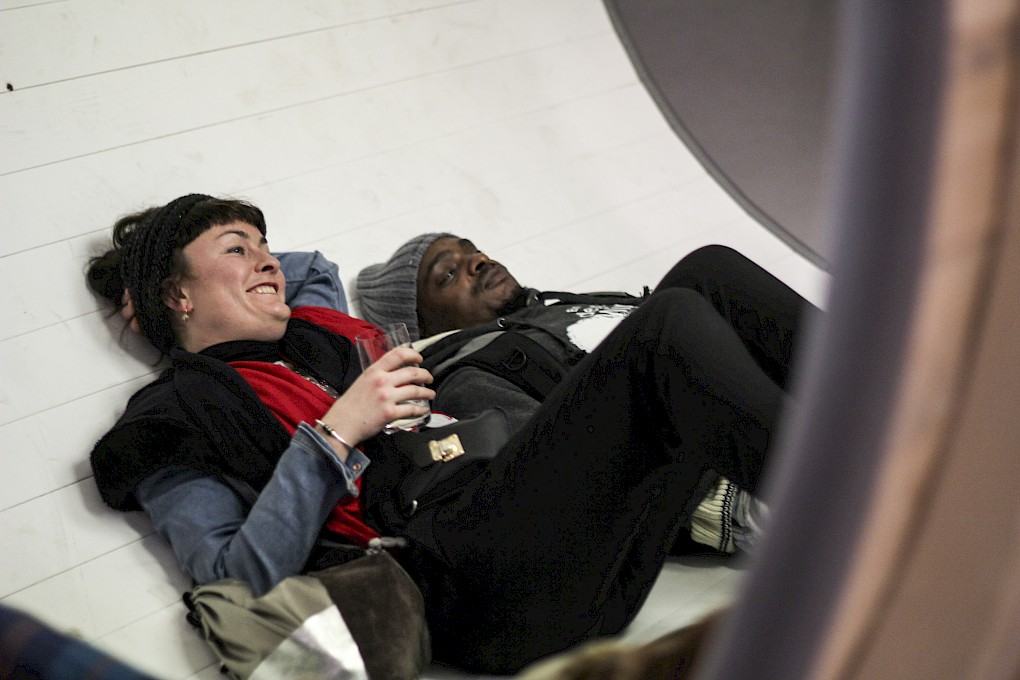
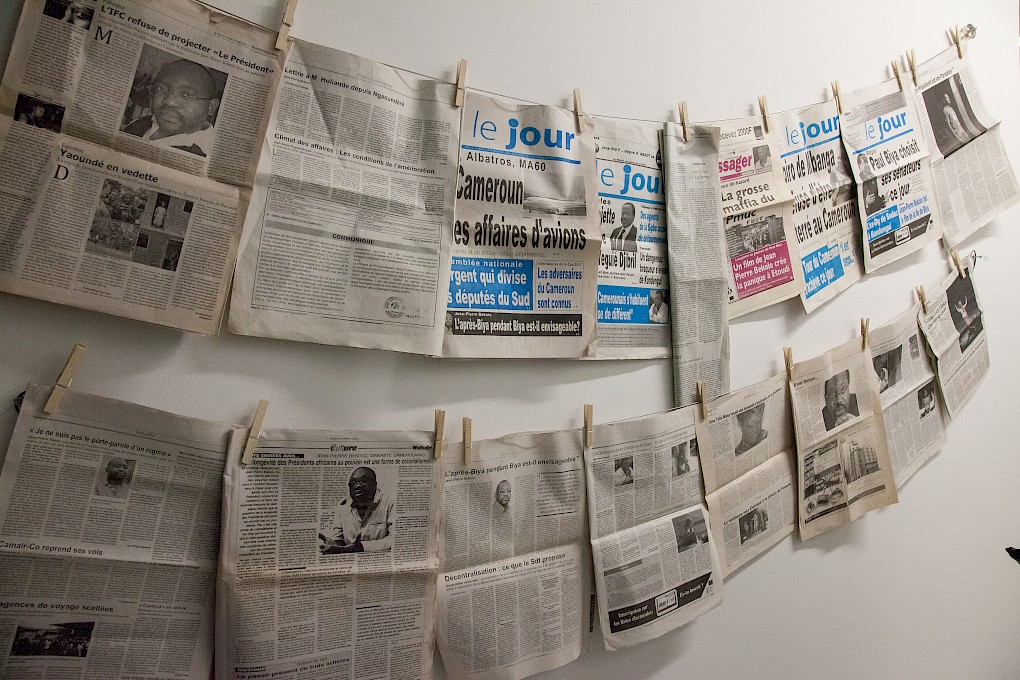
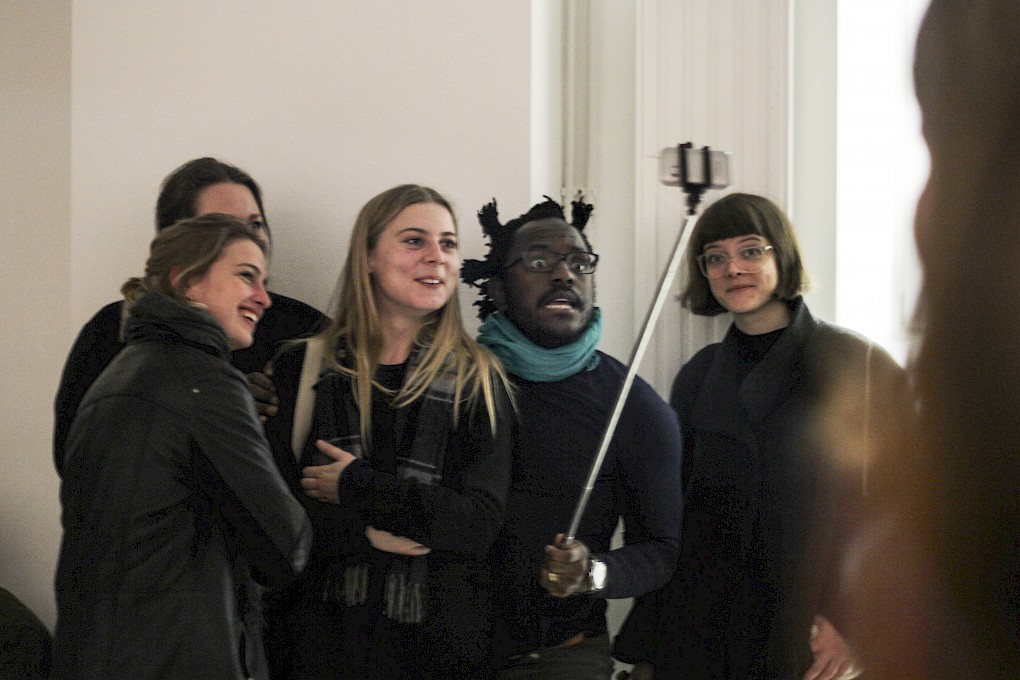
Like many critical voices before him, Bekolo neither takes cinema at face value nor takes it for granted, as he questions the essence of cinema, that is to say he rummages in the being of cinema, which one could also superlatively call the quintessence of cinema. “If cinema is made of things and of people, it is important that we revisit what we make cinema with; the tools, the language and the process through which we capture and organize this second life we call cinema that we can see outside of ourselves like radiologists and that is a narrative speculation on our lives,” says Bekolo. In this process of revisiting, uncovering, turning the pot up-side-down to see what is underneath the pot, but also giving room for the pot to be used as something else other than the pot – say as a drum – Bekolo carves out a couple of theoretical concepts, bodies or questions that will each materialize in the exhibition WELCOME TO APPLIED FICTION as the installations: Motion Thinking, Filmmaker Without a Camera, Return to Sender, Cinema with Everything, Cinema in Everything, Cinema of Everything, Film Brain – The Memory, Mining for Minds, Auteur Learning, The Miracle Room.
At this juncture it seems appropriate to ruminate on the “application” of “applied” in the context of WELCOME TO APPLIED FICTION. What is “applied” in the age of apps (applications) – these technological achievements meant to facilitate or even perform our beings, as they coordinate our activities, functions and thoughts? The app as a second spinal cord of the human being, to shorten or reduce the use of the brain, as reflexes now are either coordinated through the nervous system of the spinal cord or through the computational system of the app. So “applied fiction” as facilitated, accessible fiction? But if the “applied” in Applied Mathematics is about the practicality or the implementation of mathematics to study the biological, physical, economic and sociological world, then ‘applied fiction’ might also be the implementation of fiction to understand these the biological, physical, economic and sociological worlds and beyond. Bekolo's exhibition could be understood as an enactment of the presentational and representational in real-time, which includes both reality and its fictions, and in which both the maker and the spectator are appropriated into the process on filmmaking, and in which real life is the cinema and its fiction.
Jean-Pierre Bekolo is a film maker, writer and critic from Cameroon. His debut film Quartier Mozart received the Prix Afrique en Création at the 1992 Cannes Film Festival. His second film, Aristotle's Plot, was commissioned by the British Film Institute to celebrate the 100th anniversary of cinema, and was the first African film selected at Sundance. His 2005 released film Les Saignantes won the Silver Stallion and Best Actress Awards at FESPACO. Bekolo's video installation An African Woman in Space was on display at the Musée du Quai Branly in Paris in 2008. Banned in Cameroon in 2013, Jean-Pierre Bekolo’s controversial film Le President questions the phenomenon of Africa's “perpetual governments”. His 4-hour documentary Les Choses et Les Mots de Mudimbe was part of the official selection of the 2015 Berlinale. In 2009 he published Africa for the Future – Sortir un Nouveau Monde du Cinéma. Bekolo has also taught at UNC Chapel Hill, Duke University, and the University of Yaoundé. Since 2006, Bekolo has served as the Secretary General of the Guild of African Filmmakers, and is the founding member of the World Cinema Alliance. In 2015 he received the Prince Claus Award. Since the summer of 2015 he is a fellow of the DAAD Artists-in-Berlin Program.
globale danksagung
KAMERUN Christelle Magne Junior Chavez (Paul Engo) Malou Zogo
UGANDA Arlen Dilsizian Derek Debru
Süd-AFRICA Marc Nekaitar Motlago Masoka Eugene Paramoer
NAMIBIA Oshosheni Hivelua
BERLIN Heather Moore David Bovill David Guy Kono
BARCELONA Monica Rikic Inongo Makome
PARIS Pierre Fezeu
Support Welcome to Applied Fiction is a coproduction by the Berliner Künstlerprogramm des DAAD and SAVVY Contemporary–The laboratory of Form-Ideas, funded by Auswärtiges Amtes (AA)


